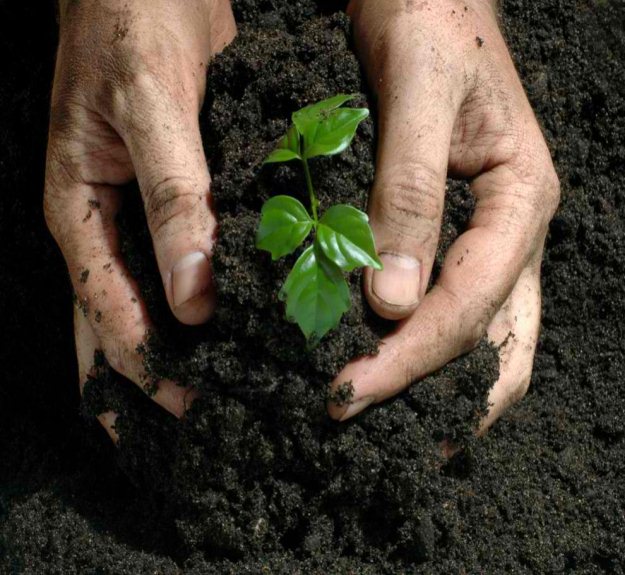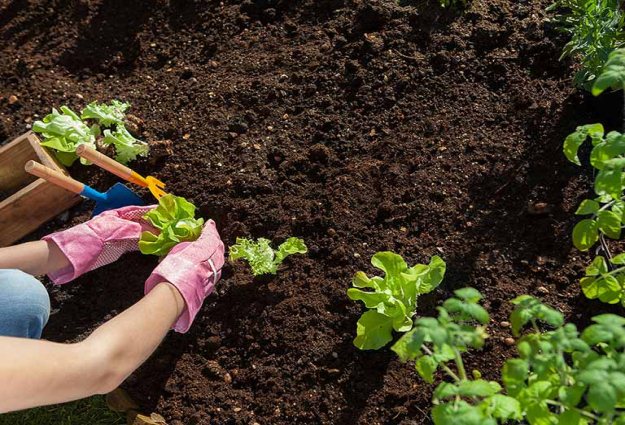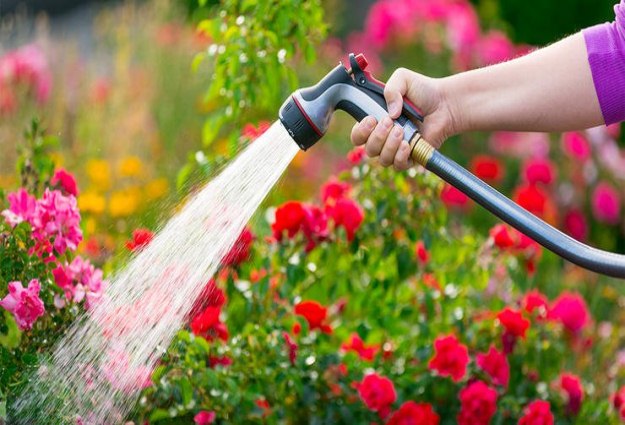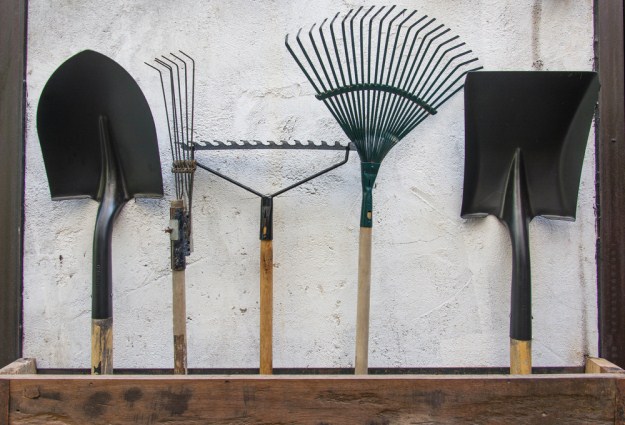Do you find composting a challenge? If you do, loosen up and worry no more because this homesteader's guide to composting will lead your path to a healthier and cleaner environment.
The Ultimate Homesteader's Guide To Composting
What is composting? Composting is simply a process of decaying organic materials the natural way making the soil healthier and more suitable for planting. If you have been planning or looking for an inspiration to get started, here's how to:
How Should You Begin:
1. Consider The Season
It doesn't make a huge difference when it comes to indoor composting, but it certainly does when we’re talking about outdoor composting. My favorite time of composting is during fall. When there are lots of microbe-rich leaves available for kick-starting my compost project, I still need to consider my equipment will be in freezing temperatures in just a few weeks. Thus, I’m going to use some leaves to create an insulated layer for the outdoor composted I’m DIYing.
2. Consider Your Compostables
How much organic matter does your family have to compost each day? How quickly does this add up? The goal of these questions is to determine how much you can realistically compost at one time in your current situation. For us, I know we have more organic waste than we could reasonably transform into compost for our small gardens. The thought has crossed my mind to sell or gift the extra compost but we would need to store the excess until it is moved. Hard to believe I know, but not many of our immediate friends are compost-curious.
Here’s a quick list of compostables you can consider to create an organic compost:
- Dryer sheets
- Soy, rice, almond, etc. milk
- Pickles
3. Get The Right Equipment
Luckily, a lot of things can be easily upcycled into incredible composters. You don’t need to go out and buy a fancy pre-fab kit. I thought over the many options and ultimately decided to go with something quite simple: two black garbage bins with lids. One is a size smaller and will fit almost perfectly into the larger one. The larger one will already be packed with insulation-providing leaves. Then, all that’s really left to secure is something – like a shovel or big stick – to stir the compost up with every few day.
4. Make It A Habit
Humans are creatures of habit – even when those habits aren’t the best. We’re used to tossing our tea bags, fruit peels and stale bread into the garbage. We’re used to bringing that garbage, in its plastic bag, out to the curb, to the garbage shoot, or to the collection bin.
Composting seems like more work simply because it is a little different. In reality, you’re just tossing the organic materials into a different bin. Instead of tying up a plastic bag and disposing of it, you stir the non-bagged materials and wait until your “Black Gold” is ready. At that point, you can use all those materials to strengthen the health of your soil, which in turn strengthens your ability to be self-sufficient. Wins all around.
Benefits Of Composting

Compost stimulates the soil's food cycle, which consists of microscopic bacteria and fungi, together with crickets, earthworms, and numerous other living things. Many parasites create a harmonious partnership with plant roots, making it workable for plants to nourish themselves all the more effectively. The study shows that compost boosts the ability of tomatoes and different vegetables to guard itself from basic plant diseases and may enhance their flavor and nutrients, too. Compost likewise helps the soil to hold moisture. Through composting the soil you improve your garden's capacity to house healthy nutritious plants while decreasing the number of you garbage. Thus, this process helps the world entirely.
Reasons Why You Should Start Composting
1. Soil Improvement

- Compost provide soil more valuable nutrients that help maintain soil fertility.
- Compost is a mild, slow discharging, organic fertilizer that will burn plants like chemical base fertilizers.
- It enhances air circulation and texture of heavier soil and also helps sandy soils improve its water retention.
- Gives soil organic nutrients and matter that provide assistance to plant development which leads to productive yields.
2. Lessen Your Impact!
- Compost lessens GHG's (Green House Gases) in 2 ways:
- Lessens CO2 (Carbon Dioxide) discharges from garbage trucks.
- Organics in landfills breakdown without oxygen to generate methane gas, a greenhouse gas is 21 times more hazardous than carbon dioxide,
- Lessens the effect of chemical fertilizers that went to our lakes, streams, and rivers.
- Buried organics can counter with metals which can lead to the development of toxic leachate, a possible source of groundwater contamination.
- Through composting we complete the cycle by giving what we grow back to the soil to help us grow!
3. Save Resources!

- Keeps a significant resource out of the landfill.
- Lessens the use of water in plants because compost provides assistance in moisture retention.
- Reduce urban expenses for waste management, therefore lessens fuel use.
- Extend the vitality of landfills.
4. Save Money!

- Composting is a product of what is already inside or even outside of your home, so it comes free! No need to purchase expensive and harmful chemical fertilizers.
- No waste! Since the nutrients from composting will not be washed away by rainfall.
Go back to your roots (pun intended) by learn the #basics for growing root #vegetables today! 🥕🥕🥕 https://t.co/LvvNpDg4b8 pic.twitter.com/AitmQCowCK
— Homesteading (@HomesteadingUSA) March 9, 2017
How to compost? Tips and Tricks
1. Gather Your Equipment

In every project, gathering your equipment is always the first step. Let’s take a look at these 4 basic tools that will help you in composting.
- Gloves: Depending on your preference, you can really opt to not to have gloves. I, for myself, would prepare to be wearing gloves every time I work in my garden. It's for my protection, just in case I can't avoid touching sharp objects and splinters of wood can happen.
- Pitchfork: Pitchfork is a perfect tool to bring in some air to your compost. It can also be very helpful when it's time to mix your composting materials.
- Shovel: Isn't is obvious shovel is for digging and it can help you whenever there is a need to transport humus to the garden soil. Make sure you can comfortably carry your shovel.
- Wheelbarrow: Wheelbarrow could be optional. However, it will make transporting huge amounts of compost materials a lot easier.
2. Build Your Compost Bin
It doesn't need to be fancy, your compost bin should suit your needs and budget. You can even simply DIY it. Our sister site Garden Season has 15 creative homemade compost bins ideas you can DIY on a budget, check it out and find one for your home.
3. What To Fill In Your Bin
Fill your bin with 1 part of fresh green materials and 2 parts of brown materials.
Greens are components that are abundance in nitrogen. They are called green because of their qualities of being wet and fresh. With the affluence of nitrogen, it is easier for microorganisms to develop, create, and multiply in their healthiest state. Common greens are the following:
- Food Scraps
- Grass Clippings
- Used Tea Bags
- Weeds
- Coffee Grounds
- Green Manure
Browns are components that are filled with carbon. Carbon is the energy provider for the key composters, like worms, rotifers, fungi, and bacteria. These are commonly dry matters such as:
- Branches and Twigs
- Sawdust
- Wood Ash
- Paper Products
- Dried Leaves
4. What Not To Add To Your Compost
These are the questionable compost material:
- Fats and oils
- Human waste
- Meat and Bones
- Manure from Carnivores
Here are the material that should not be added to your compost
- Chemically treated wood, papers, and plants
- Diseased plants
- Papers that are glossy and with colored ink
5. Stir It Up!
Turn and mix the compost once a week to circulate air through the pile. This disseminates the substance uniformly and keeps the organisms cheerful by giving them quite the much-required oxygen.
6. Water It!
Add just enough water to make it like a moist sponge. But though take note that too little or too much water will definitely slow down the whole process.
- Too Little: If the pile has too little water that will result to a dusty and dry compost that may slow downs or even stops the process. Fix it by adding water.
- Too Much: If the pile has too much water, it will cause leaking and it will have the scarcity of oxygen which is necessary for breakdown. Fix it by frequently mixing your pile.
7. Time To Use It!
The compost is done when all materials have turned into black, crumbly soil. Add it to your plant and once you use it up you can start over again and make more!
8. How To Use It!
- Add it to your garden soil: During the beginning of the gardening season, it best to add compost to your garden soil to feed you garden plants.
- Provide your potting soil good boosts: Add a few cups of compost into your potting soil before planting your plants, this will give them additional nutrients to boosts their growth.
- Cover your garden’s layer of the final compost to provide nourishment to all your plants. As you water them, the nutrients will flow into your plants, feeding them.
More About Composting To Help You Get Started
1. How To Make Compost Gardening A Fun Activity
If you think composting seems to be a mundane task, well, it should not be. Think of all the benefits you get, and quality time you can spend with your family if you do it together. Making composting a fun gardening activity is easier than you think!
2. How To Compost In Your Apartment
Space and location are not an issue when it comes to composting. Even living in a small apartment composting is possible, all you need is container and compost materials.
3. 13 Best Compost Tumblers | DIY Composting
There are many ways in which you can start composting in your homestead. If you're looking for a whole new way to start composting, using compost tumblers may be an ideal option for you.
4. Vermicomposting
Vermicomposting is one of the best ways to re-use-recycle, and repurpose, and a great opportunity to reduce waste. If these benefits ring a bell, then vermicomposting is must try!
5. The Essential Benefits Of Worm Farming
If doubts clouding you why you should start worm farming, that not should be the case. The essential benefits of worm farming will make wonders in any homestead.
6. Best Way to Make Organic Compost for Your Garden
Making an organic compost for your garden is one fo the greatest gift you could provide your plants. If you want to know how to do it right, these composting tips hit right the spot to surefire organic composting for your garden.
7. How To Effectively Make Compost From Grass Cuttings
If got abundant of grass and don't know what to do with it, you should start making compost from grass cuttings. You can solely use it or mix it with other green waste and you'll find the solution just as effective.
Want to see how composting is done? Check out his video from California Gardening:
Composting is must do task for everyone! Yes, it requires patience, hard work, and determination, but so is all the other task. But with composting, I would say all your effort is worth it and will be paid off. With composting you’re not just helping yourself, your community, but you're helping everyone around the world. So, I’d hope you’ve found the much-needed inspiration to get started with composting!
What do you think about composting? Will you start with your composting at home now? Let us know in the comments below.
Did you know that there are vegetables you can grow from scraps? Find out what food you grow from scraps here and start growing yours now!
Follow us on Instagram, twitter, pinterest, and facebook!
This post was originally published in December 2015 and has been updated for quality and relevancy.


The “Homesteader’s Guide to Composting” blog is a fantastic resource for anyone looking to embrace sustainable living. This comprehensive tutorial walks you through the process of composting, providing valuable tips and insights. From selecting the right composting method to troubleshooting common issues, this guide has it all. It empowers homesteaders to reduce waste, improve soil health, and create nutrient-rich compost for their gardens. Start composting like a pro with this informative blog!